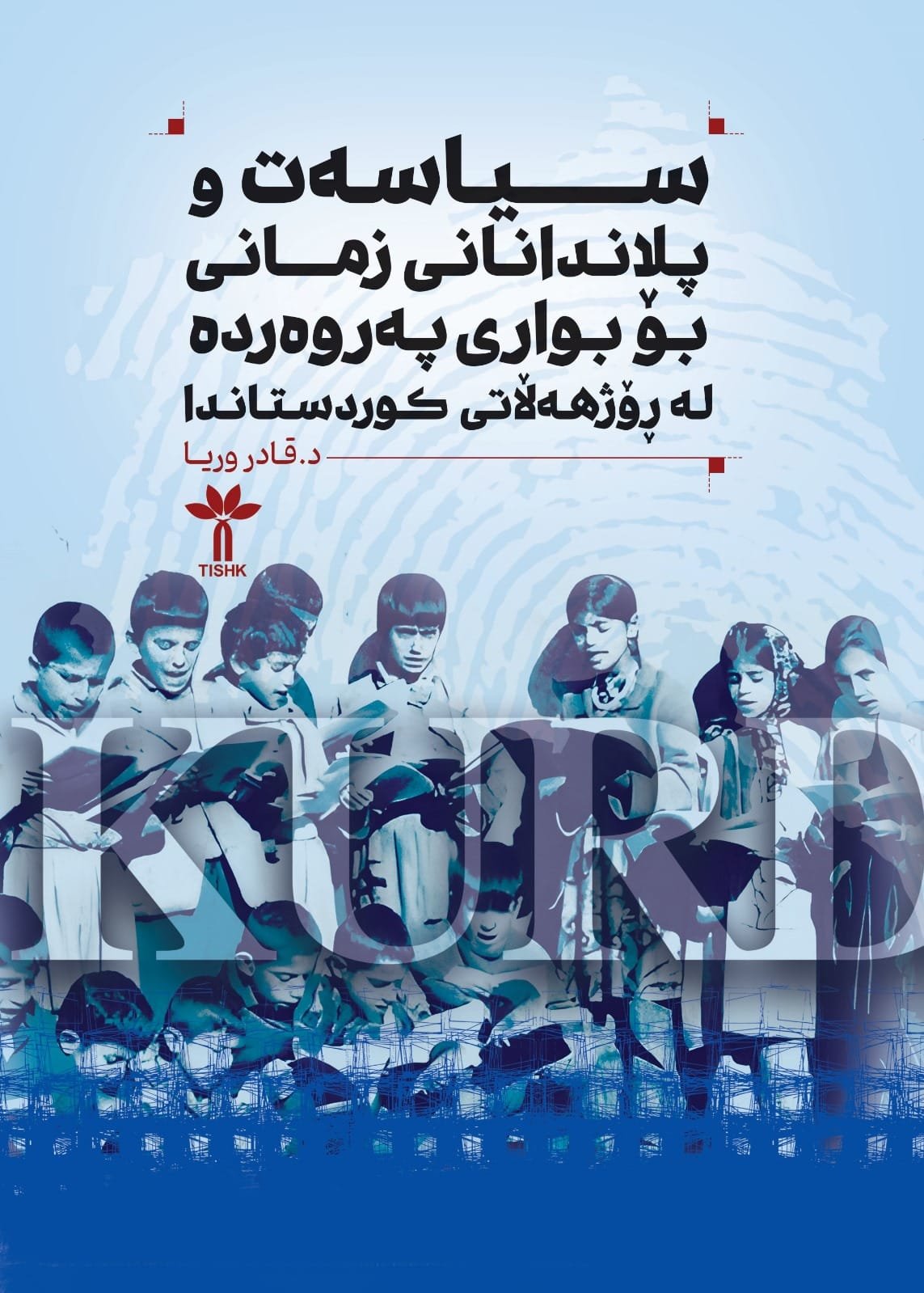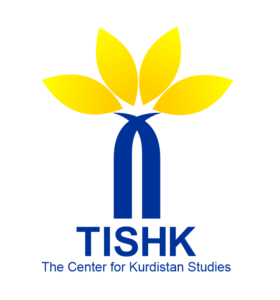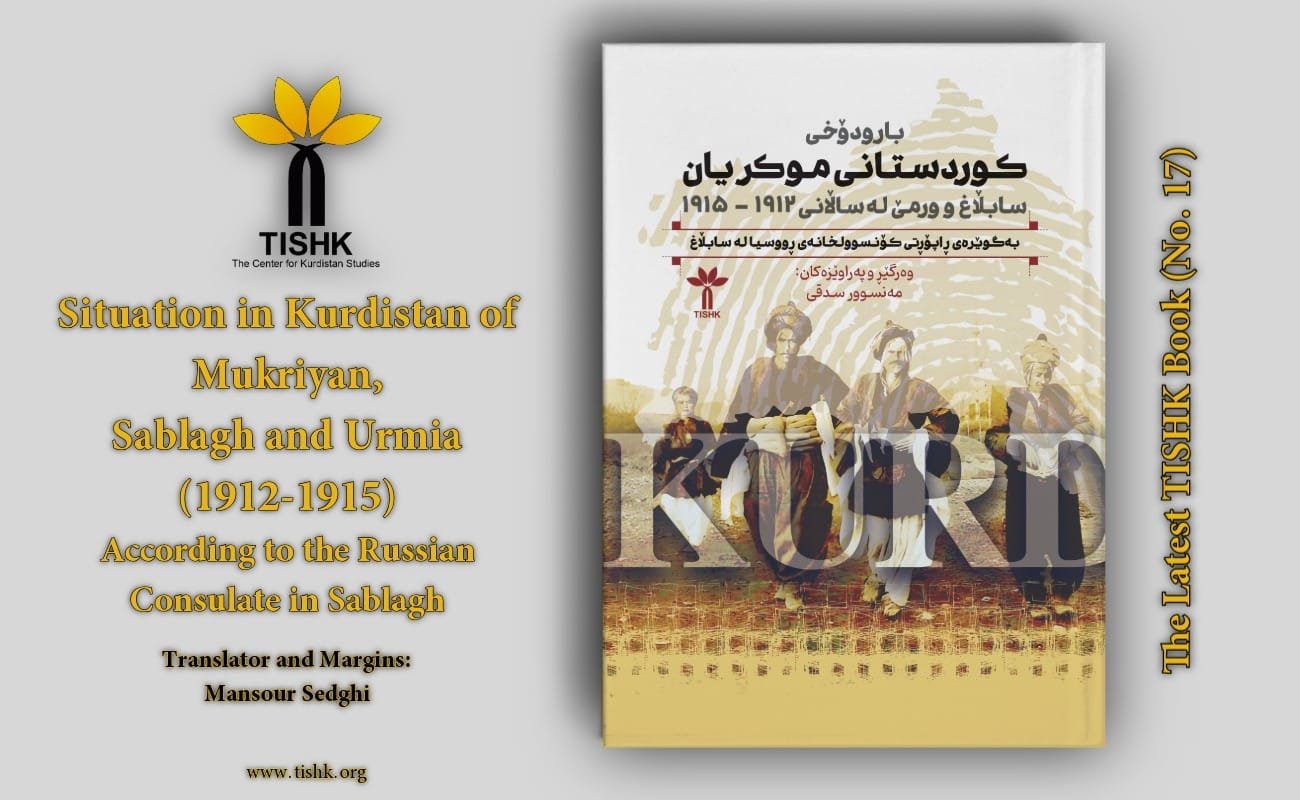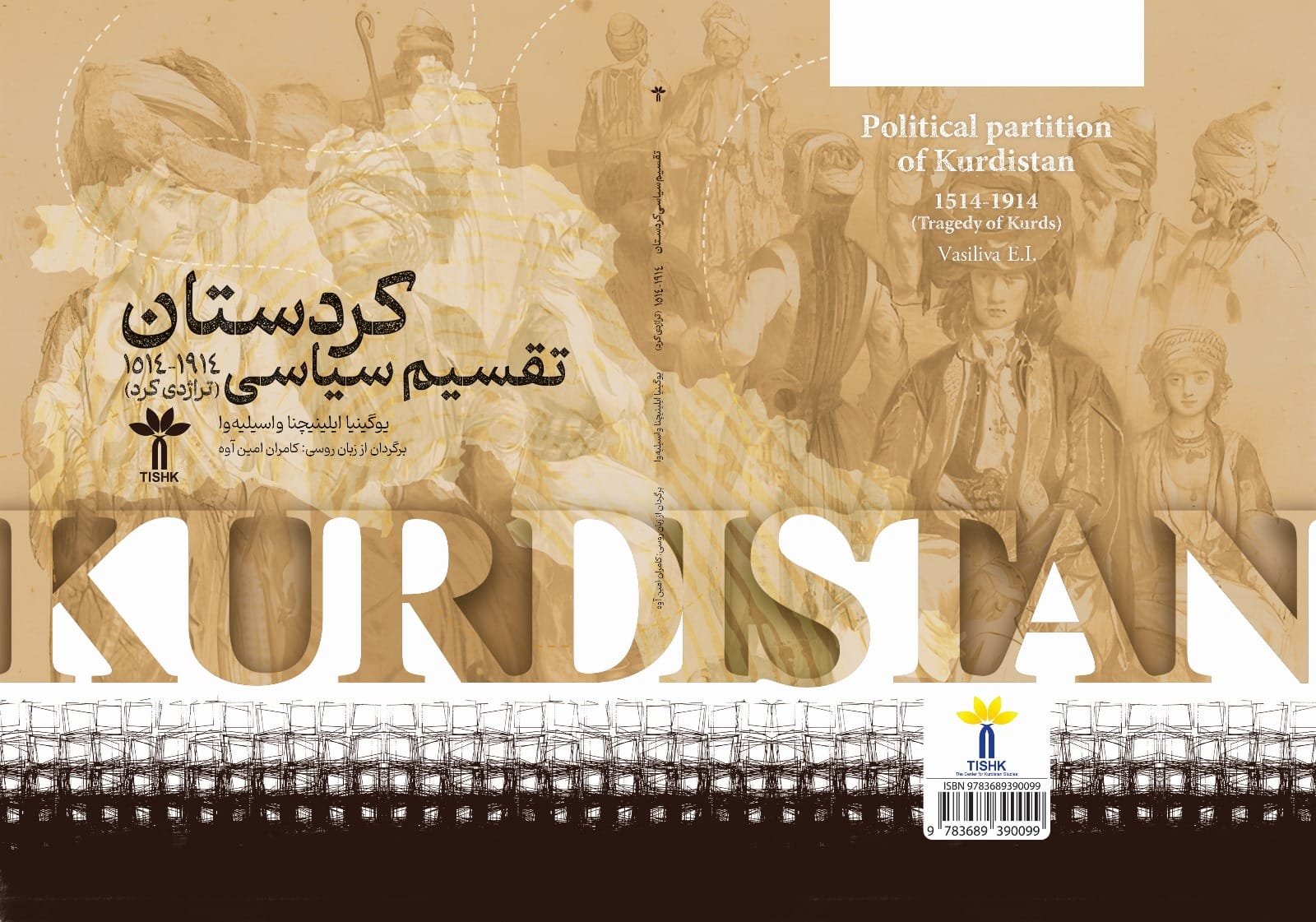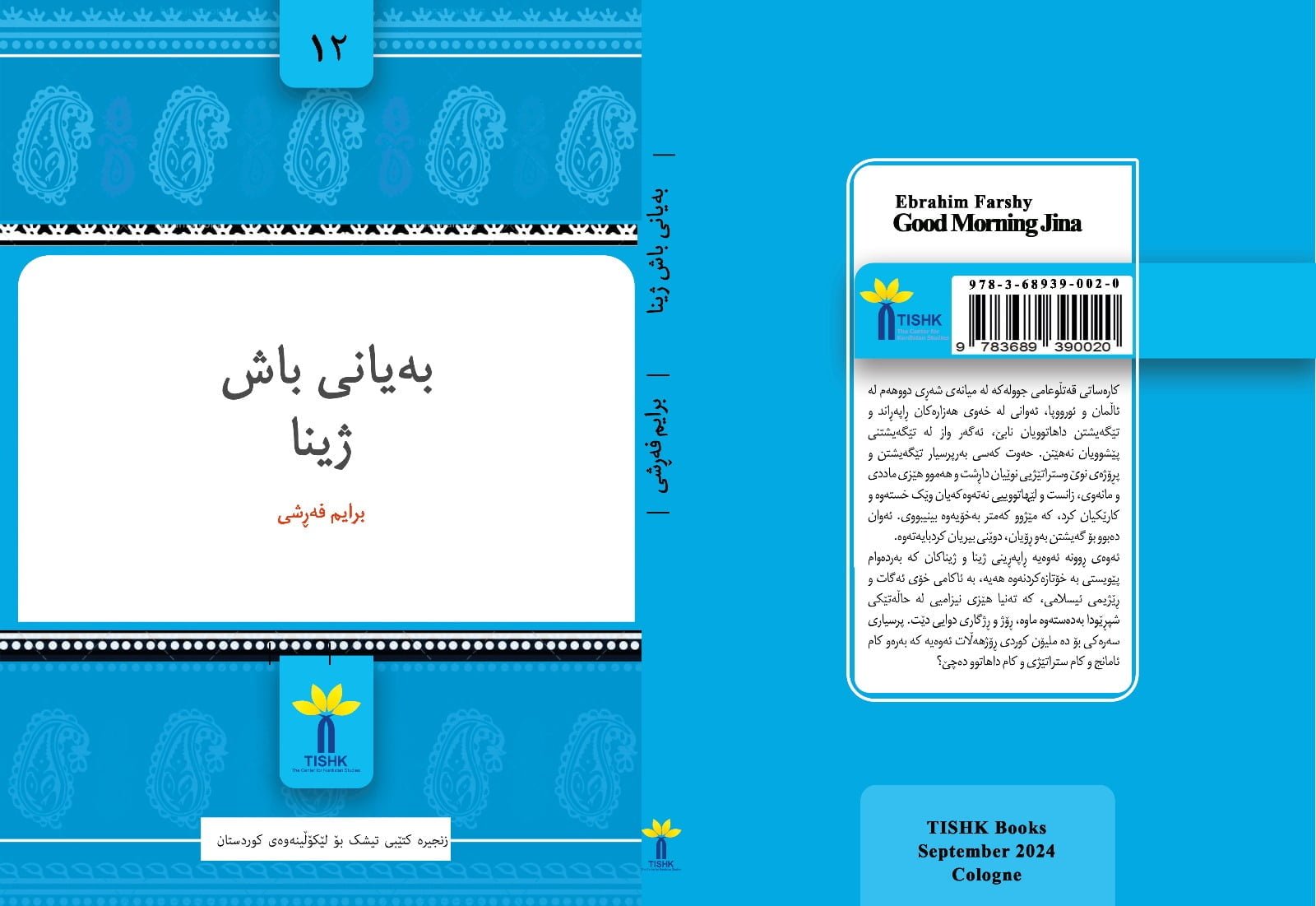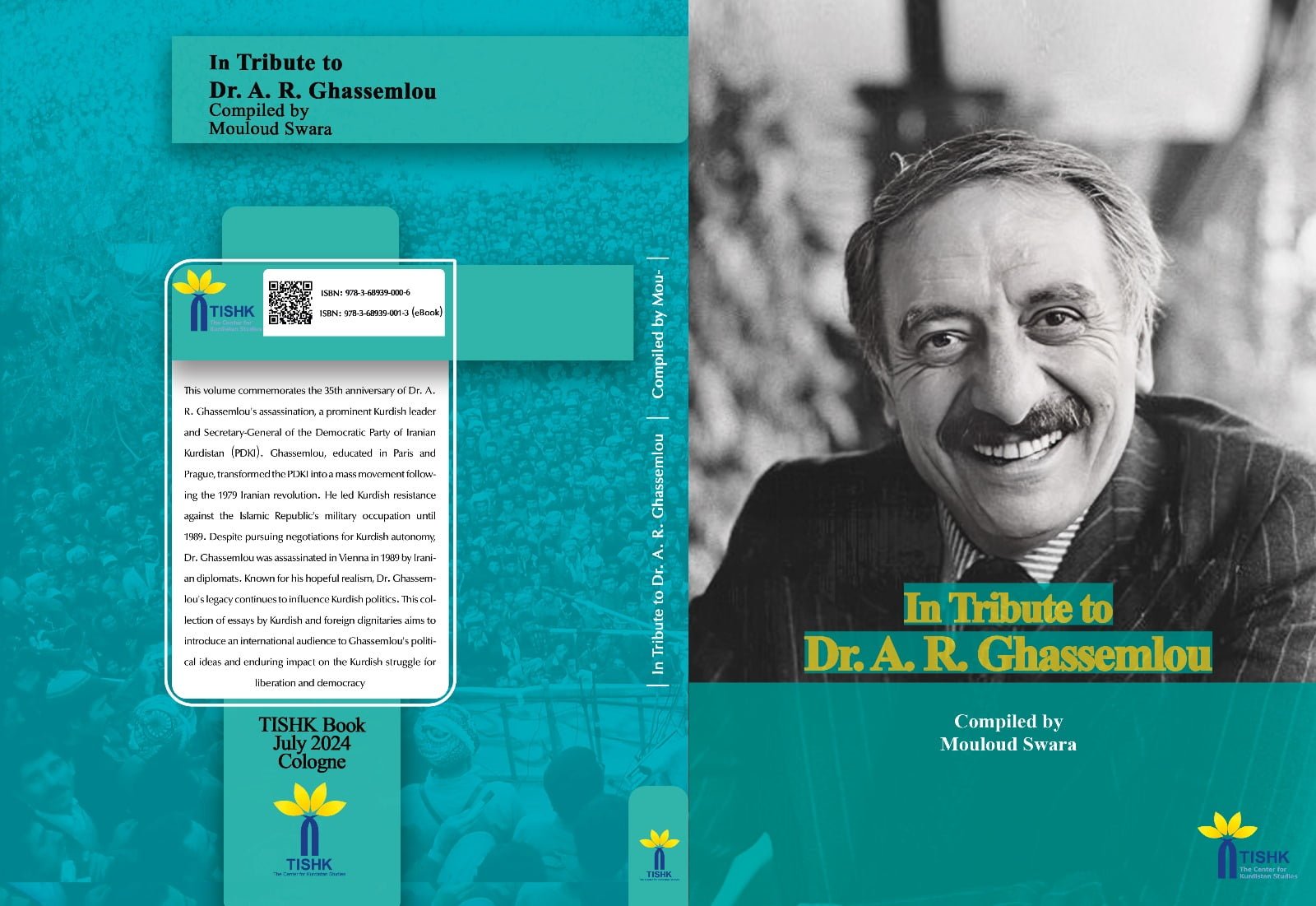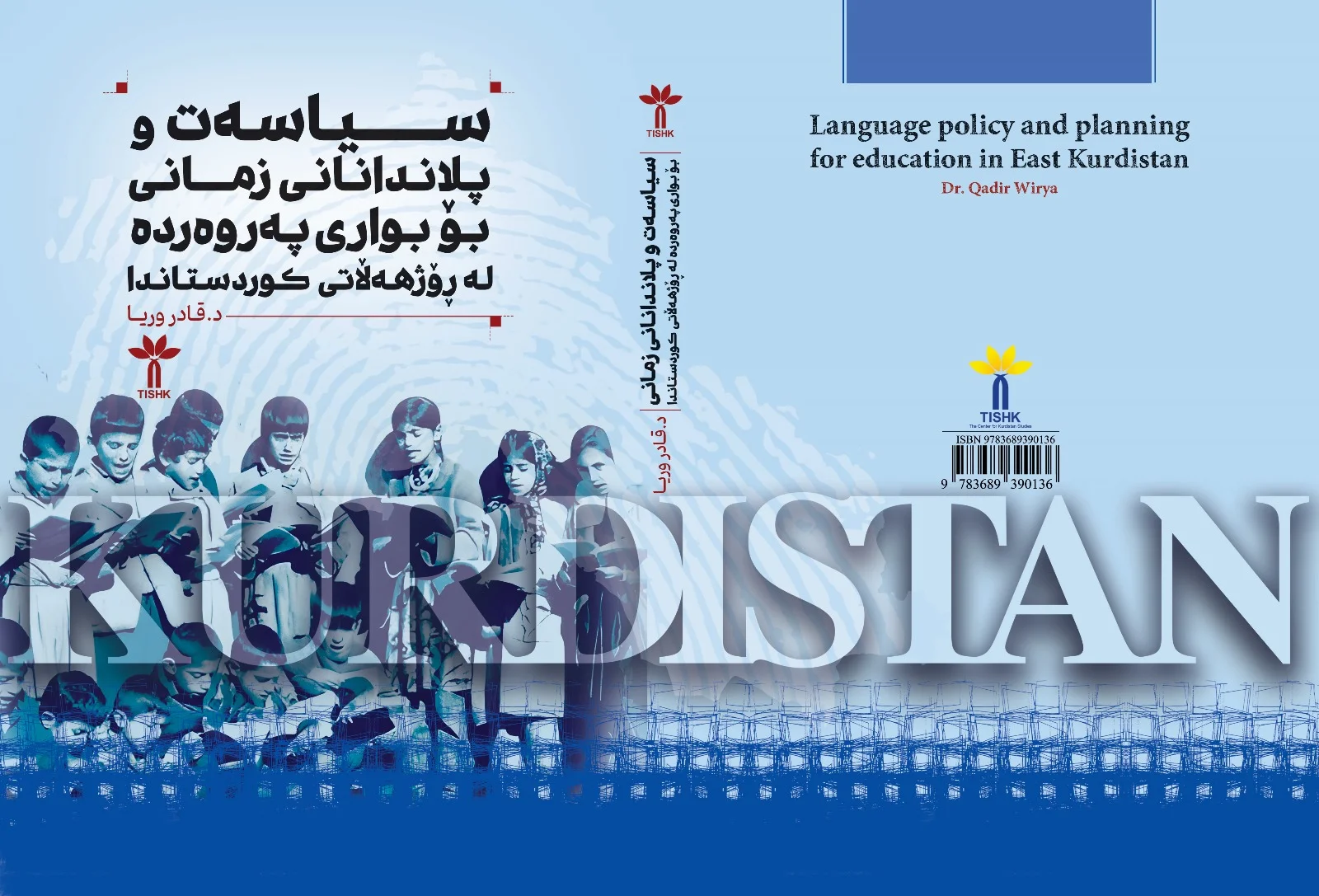
TISHK Book
Language Policy and Planning for Education in East Kurdistan
Published by TISHK Center for Kurdistan Studies: 16 October 2025
This study examines Iran’s language policy in education and its impact on non-Persian languages, focusing on Kurdish in Eastern Kurdistan. Since the early 20th century, a monolingual policy has contributed to the decline and endangerment of many minority languages. The research explores how Kurdish experts, including writers, teachers, and activists, view mother-tongue education and the challenges surrounding its implementation.
Based on written interviews with experts from across Eastern Kurdistan, the study analyzes their perspectives through theories of language policy, pluralism, and linguistic rights. The findings show a strong consensus that education in the mother tongue is essential for preserving identity, cultural continuity, and equality. Kurdish language education is seen as a foundation for social and economic development, creativity, and linguistic justice.
The study concludes that, in the absence of state support, the protection of Kurdish relies on the efforts of its native speakers. Community initiatives such as volunteer Kurdish classes, dictionary projects, and linguistic research have played a vital role in safeguarding and revitalizing the language in Eastern Kurdistan.

